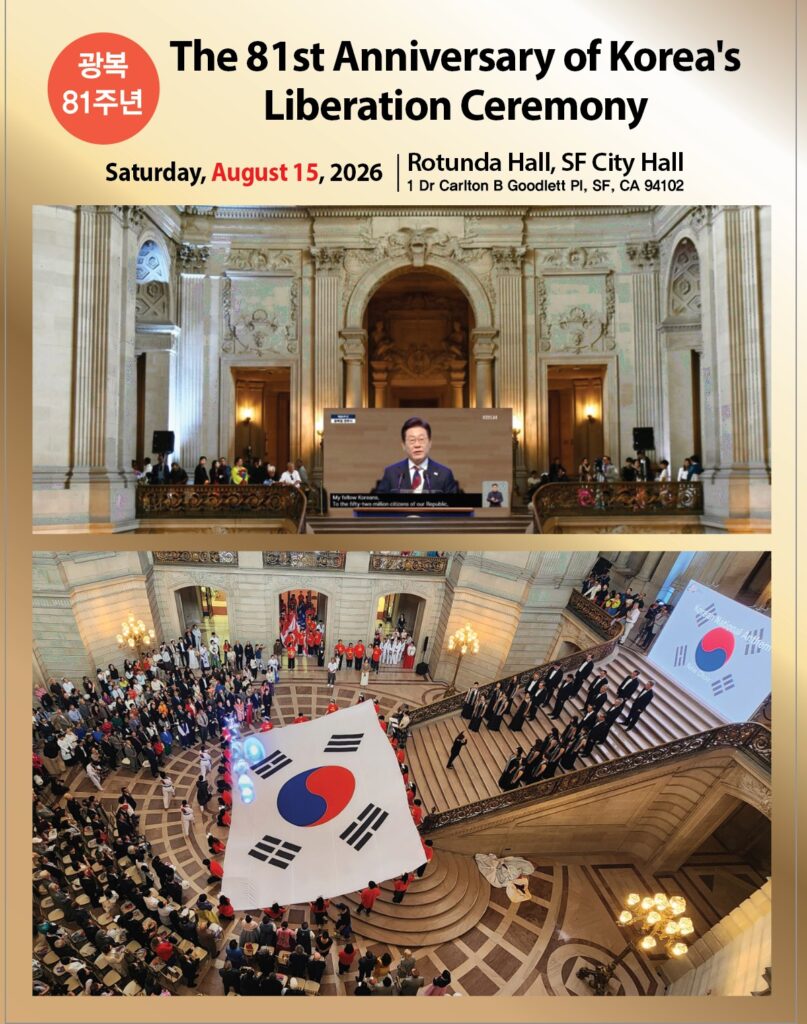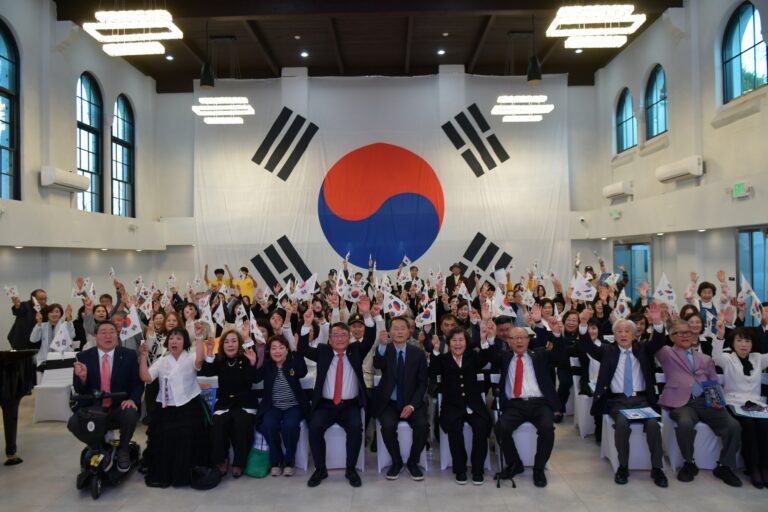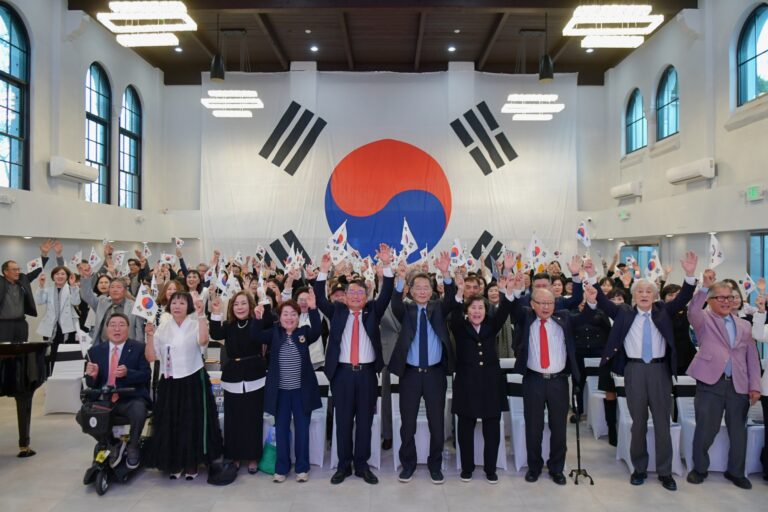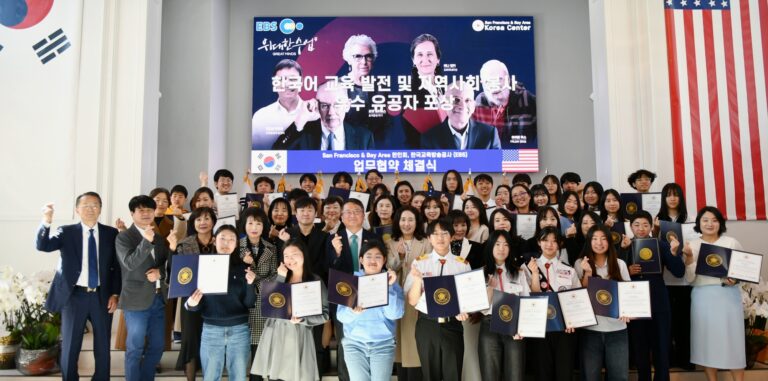San Francisco & Bay Area
Korea Center
‘해외 독립운동 성지’ 샌프란시스코 한인들, 차세대 손잡고 만세삼창
San Francisco & Bay Area 한인회와 한인단체 공동주최 제107주년 3.1절 기념식
San Francisco & Bay Area 한인회–EBS 업무협약 체결 및 지역사회 우수 유공자 포상식 개최
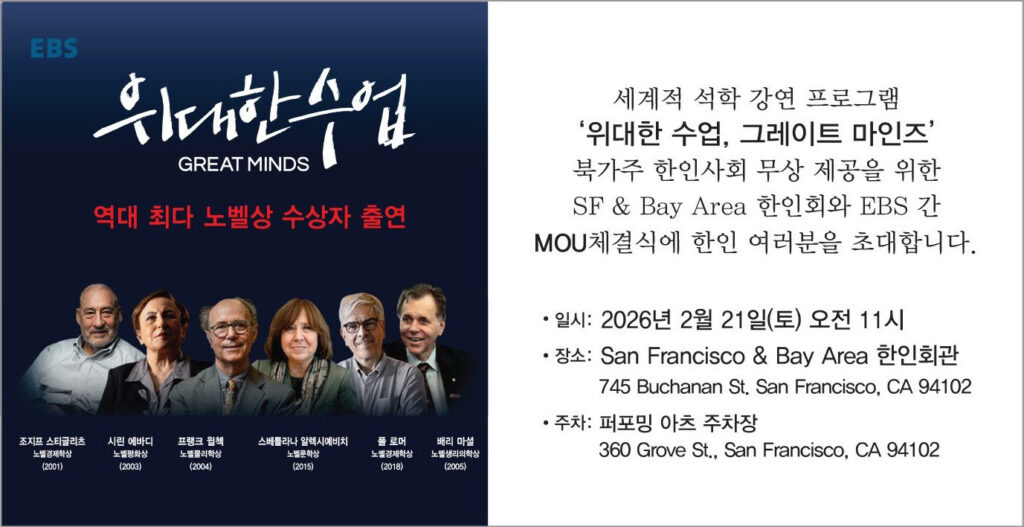
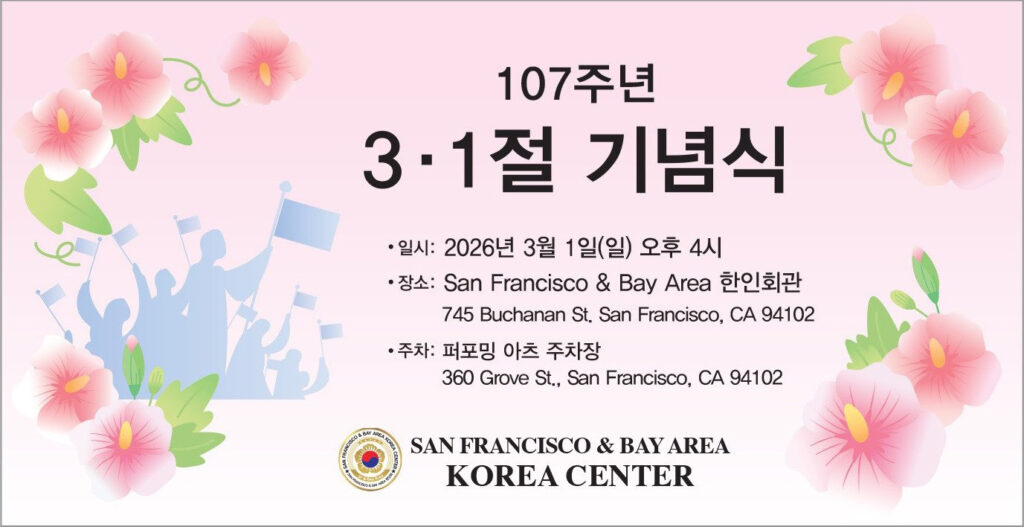
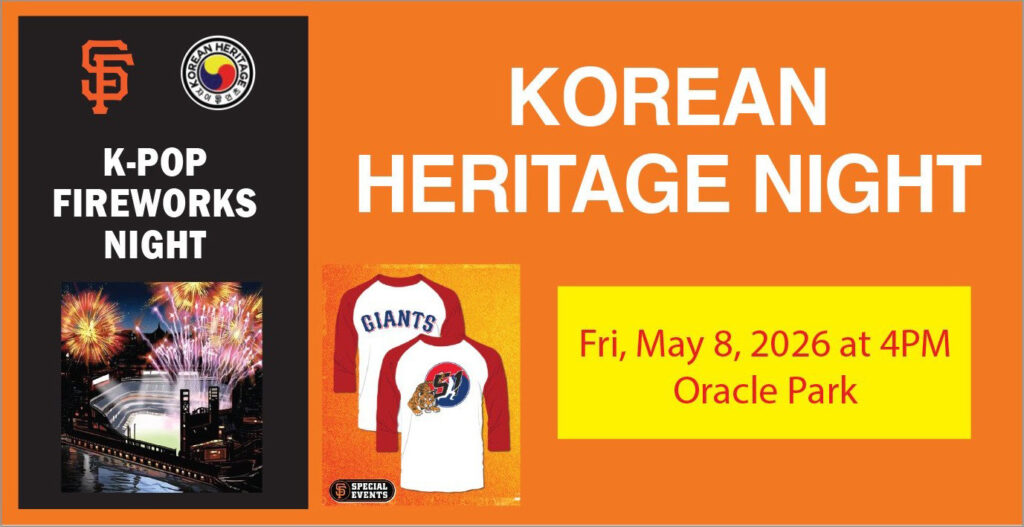
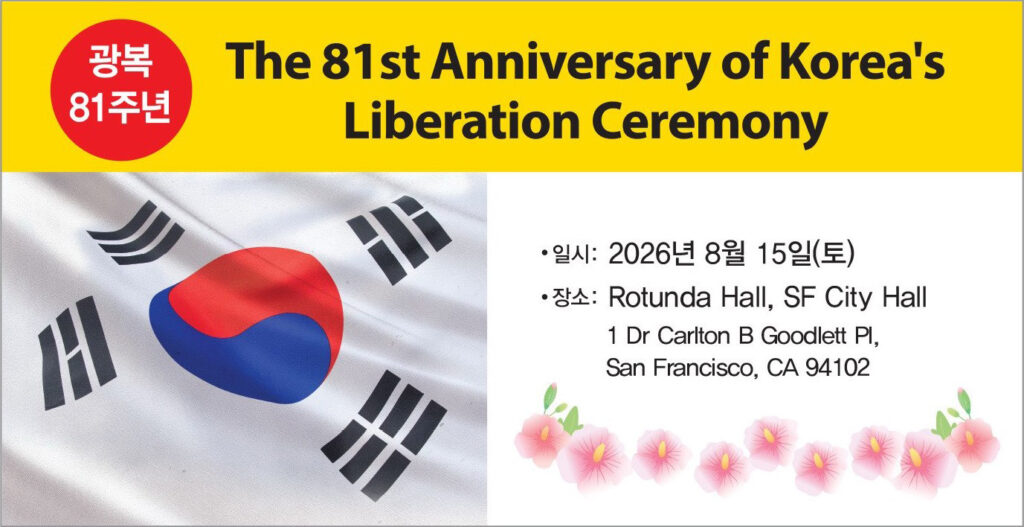

81th Anniversary of Korea’s Liberation Day Commemoration Ceremony & Celebration Performance
This year marks the 81th anniversary of Korea’s Liberation Day. To honor this historic milestone, the Consulate General of the Republic of Korea in San Francisco, the San Francisco & Bay Area Korea Center, the Korean Associations of Northern California, and various community organizations will host a large scale commemorative event in Northern California.
Event Details:
Date: Saturday, August 15, 2026
Time: 5:00 PM
Location: Rotunda Hall, San Francisco City Hall & City Hall Plaza
(1 Dr. Carlton B. Goodlett Place, San Francisco, CA 94102)
Program Highlights:
•Commemorative ceremony honoring Korea’s independence and the sacrifices of patriotic ancestors
•Cultural performances featuring traditional Korean dance, large scale folk games, and K-POP showcases
•Community wide participation, from children to seniors, alongside local politicians and community leaders
This event celebrates Korean heritage, strengthens cultural identity, and shares Korea’s vibrant traditions with the wider community.
For more information and updates, please visit:
www.SFKorea.org
